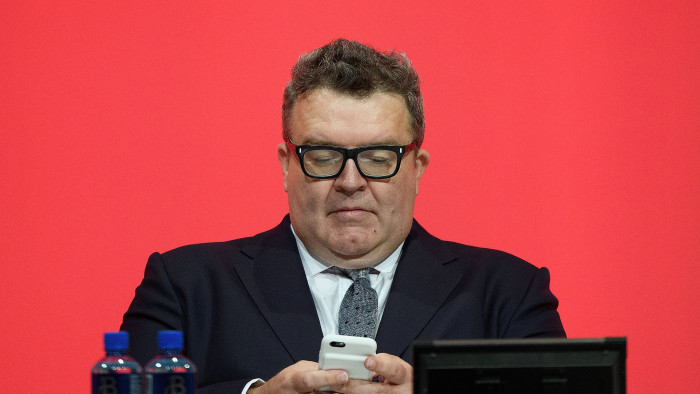Messaging services find political fans

Roula Khalaf, Editor of the FT, selects her favourite stories in this weekly newsletter.
First there was the pager. Then came the text message. But is the Mother of Parliaments now marching to the drum of WhatsApp? In a whirlwind political year in the UK that featured the Brexit referendum and leadership elections in the Conservative and Labour parties, there were rumblings the messaging service had found political fans.
The app, with its ability for instantaneous group chats, appears made for political scheming. As centrist Labour MPs tried to organise opposition to Jeremy Corbyn this summer, they reportedly turned to WhatsApp to discuss their plans. During the key moments of the EU referendum — the TV debates and the final count — campaigners had also embraced it. “It is big,” says one. “We used it all the time.”
It is unclear whether WhatsApp really changed anything: the centrist MPs who used it did not succeed in ousting Mr Corbyn; one of the Labour leader’s allies denounced them as “useless”.
Nonetheless, for those in government, WhatsApp — and other services such as Skype — have a big advantage over email: messages are more likely to escape the prying eye of the Freedom of Information Act.
This is not a legal point — all relevant personal messages should be disclosed — but a practical one, given that the service is encrypted and often installed on officials’ personal phones. This has not escaped the attention of the tabloid press. During the EU referendum campaign, The Sun proclaimed on its front page that the then prime minister David Cameron’s allies were using the app to skirt round the restrictions.
Mr Cameron’s director of communications, Craig Oliver, was enraged by the report. “Those of us in the group, which is actually used to make sure we are all up to speed on fast-moving stories when we are out of the office, and late at night to take the piss out of each other, are contemptuous,” Mr Oliver says of the story in his memoir Unleashing Demons.
“Does anyone involved in the story really understand what [WhatsApp] is or why it is used?”
In any case, WhatsApp’s success may be double-edged. Once politicians have noticed a technology, they have a tendency to demand more of it.
Take Twitter. Many MPs are near-addicted to the platform, and as a result, they are well aware of the offensive content that it sometimes contains.
“It is disgraceful that any individual should have to tolerate such appalling levels of anti-semitic abuse in order to use Twitter — a social media platform now regarded as a requirement for any public figure,” a committee of MPs concluded last month, before calling for the service to spend more money rooting out abuse.
Until January 2014, WhatsApp and rival service Snapchat had largely escaped political attention — and had never even been mentioned in a parliamentary debate. Recently, however, they have cropped up more often as the government seeks to widen its surveillance powers. MPs have agreed with security services that the government needs “the same powers in the age of Snapchat and WhatsApp as we had in the age of the telephone”.
Opposition politicians, meanwhile, have sought to show superior knowledge. Brian Paddick, a former police officer who is now a Liberal Democrat peer, told the House of Lords in October he had “10 different apps on my mobile phone” used to communicate with other people. These included “my Facebook app, my WhatsApp and iMessenger apps — which are end-to-end encrypted messaging apps — my Facebook Messenger app and my Twitter app,” he said. His point was that monitoring when apps were connected to the internet — as the government was proposing — would not be particularly effective.
Y
et not everyone is in on the action. Those at the top of politics generally have little time for the latest technology. When Tony Blair was prime minister, he never even got the hang of a computer.
And as Conservative MP Oliver Letwin, then a Cabinet Office minister, told the House of Commons in April: “I hesitate to admit . . . that I have never personally used WhatsApp in my life.” At which point the speaker said: “That probably makes two of us, then.”
One of those to embrace WhatsApp, the former planning minister Nick Boles, was caught red-faced during the Tory leadership contest when a message he had sent to MPs, asking for them to support Michael Gove for tactical reasons, leaked to the press.
But the message was a text, rather than a WhatsApp chat, proving perhaps that the older medium is still king in the corridors of power. Who knows, there may even be the odd surviving pager.
Comments